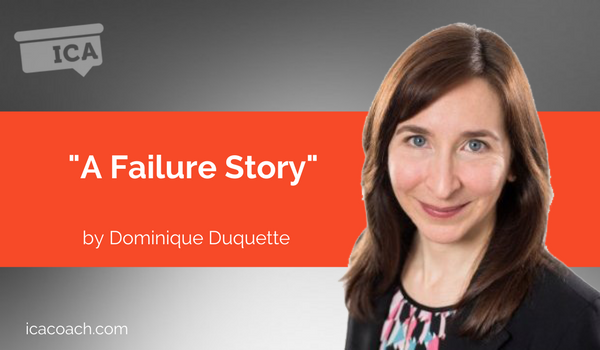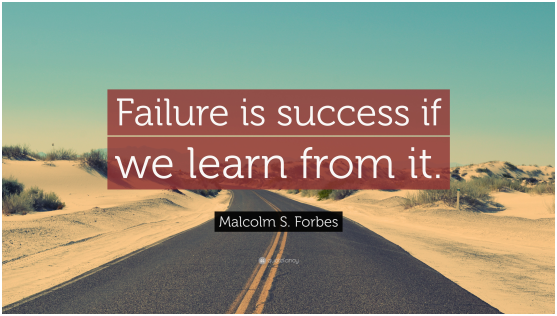
Research Paper By Dominique Duquette
(Entrepreneurship Coach, CANADA)
1. Who are the main players in this case study?
One of my clients is an Entrepreneurship School that is offering entrepreneurs an outstanding and challenging 16 weeks program to help them start their business. Inside this program, 8 hours of coaching per person are planned in order to help the students pass through the program, while developing their entrepreneurship skills. Since the beginning of 2016, I coach these talented and impressive entrepreneurs of all ages.
One of these was Stephy, a strong minded and determined entrepreneur. Stephy is an achiever and a hard worker. She lives for challenges. She could move mountains and do whatever is necessary to succeed. Her life is 150% focused on work, making its young business grow.
Family, friends and relations are not a priority. “Maybe one day”, she said. She don’t like team work because people slow her down. Her communication style is direct and sometimes aggressive. She may lose her temper when things don’t go as she expected.
In February 2016, I had a hard time coaching Stephy. This case study relates my trials, researches, learnings and describes the variety of emotions I went though during this 16 weeks adventure of unsuccessful coaching with Stephy.

2. What is the core problem or challenge you applied your coaching skills to?
Before beginning the coaching process, I sent Stephy a coaching agreement explaining what is coaching, what she can expect from it, our mutual responsibilities, and so on. I validated her understanding and her engagement. Then, we signed it up.
Stephy brought subjects and objectives to discuss. Here are 2 examples:
When I was trying to understand why these objectives were important to her and what it would change in her life, most of the times, she gave superficial answers. I had no access to her emotions. One day, she said: “I don’t want to talk about my feelings, I want to find solutions”. Wanting to respect her limits, each time I jumped to the next step, trying to explore solutions with her. She never gained awareness and the solutions were short-term and superficial. “This coaching brings no value to my business”, she said.
After each session, I felt very bad, asking myself why I was not able to access to the “real” Stephy. I was not able to build trust and intimacy – the third ICF competency! I was disappointed to not help her find solutions and felt responsible for getting no results. Before each session, I was stressed and under the pressure of performing. “I’am not a good coach”, I said one day to my husband.
3. What specific coaching skills or approach did you use in this case? Explain in details.
I have a scientific background and, when I encounter challenges, the first thing I do is to read and study. I opened my ICA binder and reviewed each module, looking for some clues and trying to find what I was doing wrong. I synthesized the information and built my coaching tool – a simple sheet with my own process. But still, my coaching sessions with Stephy were catastrophic, slowly ruining my passion for coaching and my engagement to help entrepreneurs.
Then, I thought maybe my questioning was not powerful enough. I posted a message on the ICA forum, looking for inspiration to find “the right” questions. I studied hundreds of questions. I tried those with Stephy, without success.
One day, I participated in a lab at ICA and I discussed this case with the class. The discussion made me realize that not everybody wishes to be coached. At the Entrepreneurship School, the entrepreneurs do not decide if they want coaching, it is forced, in a sense. It is part of the program.
I discussed the case with my peer coach and, the week after, I played the client role during a mentor coaching class. My objective was to feel better about this coaching. During the mentor coaching, my coach reflected to me: “you seem to attach a lot of importance to your client’s results”. This was an important “ah ah” moment for me.
Coaching cannot be forced. A sincere relation built on trust has to take place. Coaching has to be desired by the client and the client has to be opened and ready for change. No trust, no openness, no awareness, no valuable action plan.
The coach is not responsible for the client’s actions and results; it is the client’s role. Only Stephy had the power to change her life. And to do this, she had to be ready to open her heart. Without understanding “WHY” she wanted to change and without talking about how she felt about the change, we cannot expect awareness to magically occur.
I also learned there is no “right question”. Yes, I still believe that powerful questioning is pertinent and important, but I think the most important is to listen deeply to the emotions. If the client refuses to express emotions, we have to respect that. We cannot force anyone to be ready.
During a mentor coaching session one day, I heard someone say: “stop trying to be a perfect coach. You will never be a perfect coach. There is always something to learn”. My vision of perfection and performance in coaching then drastically changed. I will learn until I die and that is awesome.
5. What were the results of your process? Was your coaching/program effective? Why? Why not?
My learning process during Stephy’s coaching did not improve the effectiveness of my coaching with her. However, I learned a lot.
After all these reflections and “ah-ah” moments, I felt a lot better about my coaching. I decided to live every precious moment with my clients. I’m still using my coaching sheet, but I’m not always following the steps I wrote on it. I allow myself to be free in this process.
Today, I pay more attention on validating the client’s engagement and finding his “WHY” than working on designing actions and solutions. Once the “WHY” is identified, the client often shifts his mind and finds solutions by himself very quickly.
I also changed my perception of perfection and performance in coaching. The result of the coaching depends on the client. I will learn all my lifetime, I will never be a perfect coach and it’s OK.
Since beginning of 2016, I coached 125 hours with the Entrepreneurship School and other organizations. Sometimes, my clients have “ah-ah” moments and gain awareness. Sometimes, not. It’s OK. It takes time, patience, trust, caring, listening. And questioning.
6. If you could approach this problem again, what would you do differently?
I feel proud about this story and I have no regrets. It has a lot of value to me.
I will probably have another client like Stephy. Next time, I will explain the importance of being ready and engaged to change. I will try, be patient. After 2 sessions, if I feel the client is not engaged, not ready to share and to dive inside of him, then I’m not coaching and I explain why.
7. What are the top 3 things you learnt from this experience?
Here are 3 simple advice’s I formulated for myself:
Every week, I am grateful to Stephy for this experience. I am also grateful to my peer coach, to the ICA students and teachers. This case really challenged me. It helped me reinforce my competencies and, at the end, gain confidence in my coaching style. Writing about it makes me feel good. I learned. It is not over.